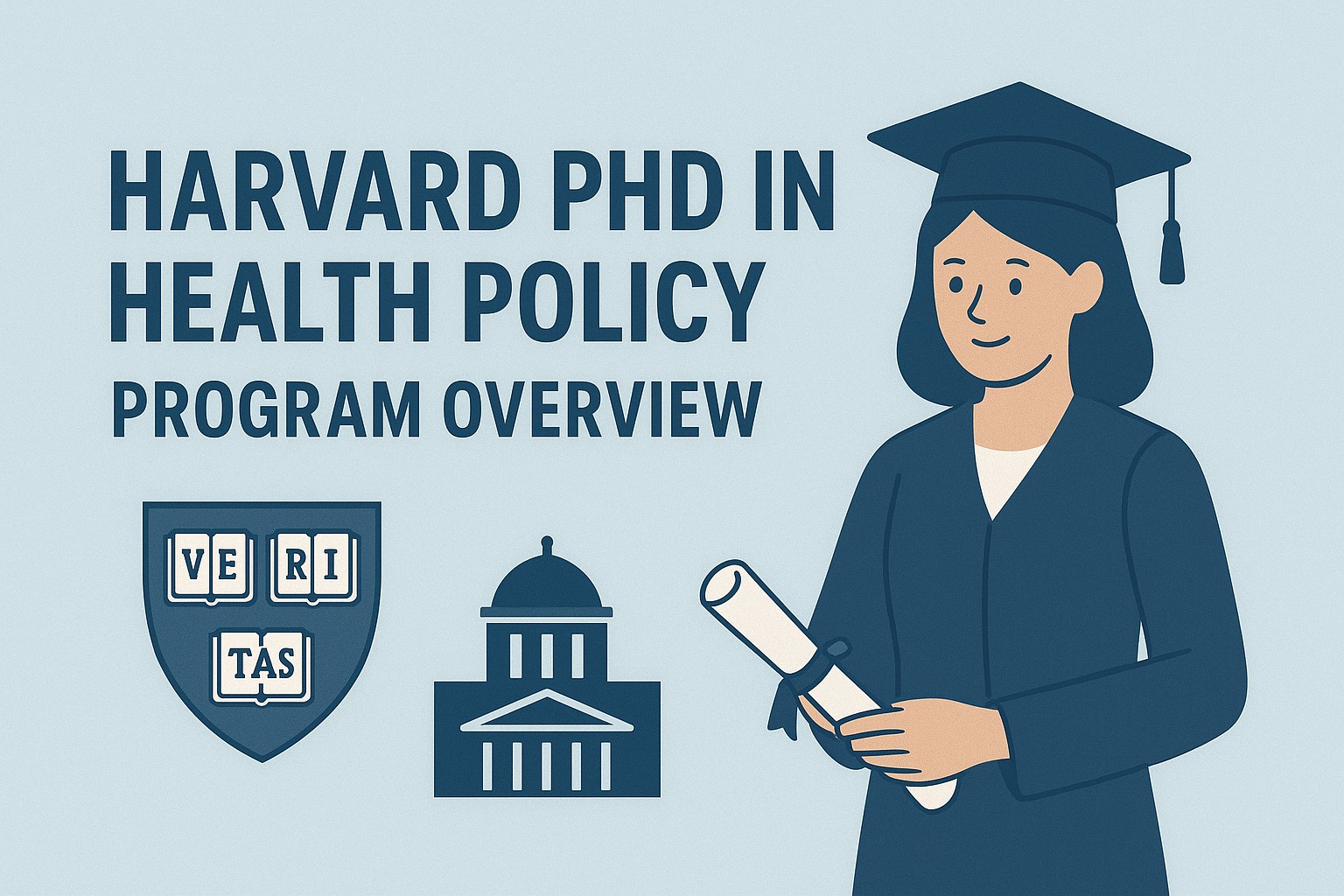PhD in Health Policy
An interdisciplinary journey to shape the future of healthcare.

What is It?
The PhD in Health Policy is a collaborative program offered by six departments within Harvard University. It is designed to train the next generation of leaders in health policy research. The program equips students with the rigorous analytical skills needed to evaluate and design effective health policies, drawing from fields like economics, ethics, statistics, and political science.
Program Duration
The program is designed to be completed in approximately five years. The first two years are dedicated to intensive coursework and foundational training. The subsequent three years are focused on independent research, culminating in the completion and defense of a doctoral dissertation. This timeline ensures a deep and comprehensive mastery of the field.
Interdisciplinary Core
A key feature of the program is its interfaculty nature, involving the Graduate School of Arts and Sciences, Harvard Medical School, Harvard T.H. Chan School of Public Health, and the Harvard Kennedy School. This structure allows students to learn from a diverse range of experts and perspectives, fostering a holistic understanding of complex health challenges.
The Path to a PhD
The curriculum is structured to build a strong foundation before allowing for specialized, in-depth research. Explore the concentrations and typical program timeline below to understand the academic journey.
Areas of Concentration
Students choose one of six concentration tracks to focus their studies and dissertation research.
Program Timeline
Interact with the timeline to see the key milestones for each year of the program.
Joining the Ranks
Admission is highly competitive. Successful applicants demonstrate strong academic preparation, research potential, and a clear commitment to health policy.
Application Requirements
- ✓ Online Application & Fee: Submitted through the Graduate School of Arts and Sciences.
- ✓ Transcripts: From all undergraduate and graduate institutions attended.
- ✓ Letters of Recommendation: Three letters, preferably from academic sources.
- ✓ Statement of Purpose: A detailed essay outlining your research interests and career goals.
- ✓ GRE Scores: General Test scores are required.
- ✓ TOEFL/IELTS: For applicants whose native language is not English.
Typical Admitted Student Profile
While diverse, admitted students often share strong quantitative and analytical backgrounds from previous graduate studies.
Beyond the PhD
Graduates of the program pursue influential careers in academia, government, and the private sector, shaping health policy at the highest levels.
Primary Employment Sectors
The majority of alumni take on research and faculty positions at leading universities, with others moving into pivotal roles in government and industry.
Career Opportunities
The rigorous training prepares graduates for a variety of roles where advanced research skills are paramount. Common career paths include:
- University Professor: Conducting research and teaching at top-tier universities and medical schools.
- Government Researcher: Working in agencies like the NIH, CDC, or Congressional Budget Office to inform policy decisions.
- Private Sector Consultant: Applying analytical expertise in consulting firms, pharmaceutical companies, or insurance organizations.
- Non-Profit Leader: Leading research and advocacy at major foundations and non-governmental organizations.